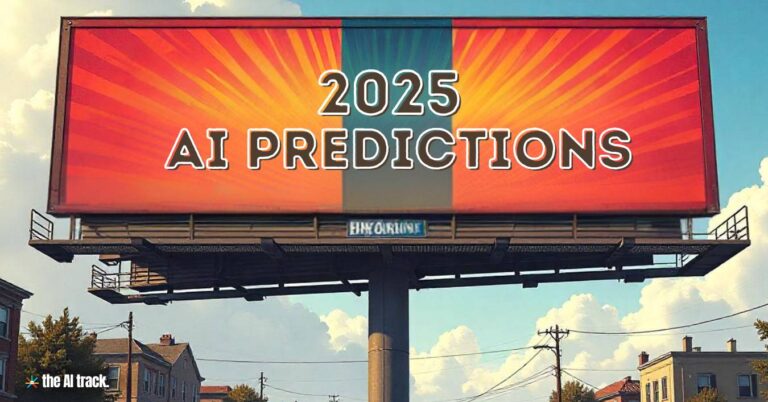Brady Corbet’s The Brutalist integrates AI to refine Hungarian dialogue and conceptualize architectural designs, sparking broader discussions about AI’s ethical and artistic implications in cinema.

Debate Ignites Over AI’s Role in The Brutalist Film – Key Points
AI in Dialogue Refinement
Hungarian’s Linguistic Complexity:
Hungarian is renowned for its intricate phonemes, vowel harmony, and sounds unfamiliar to non-native speakers. Actors Adrien Brody and Felicity Jones faced significant challenges mastering the language despite months of intensive training with dialect coach Tanera Marshall. Their linguistic hurdles stemmed from their Anglo-Saxon linguistic roots, making phonetic precision particularly difficult.
Respeecher’s AI Contribution:
Editor Dávid Jancsó, a native Hungarian, employed Respeecher’s advanced AI tools to subtly enhance the Hungarian dialogue. The AI system, using Jancsó’s voice model, refined vowel sounds and phonemes while preserving the actors’ emotional expressions.This enabled targeted corrections without requiring extensive ADR (Automated Dialogue Replacement) or costly reshoots, which were impractical given the film’s budget of under $10 million.
Respeecher, an Emmy Award-winning AI voice cloning startup based in Kyiv, Ukraine, is known for recreating iconic voices like Darth Vader and Luke Skywalker for the Star Wars TV series, as well as digitally recreating legendary voices like Jimmy Stewart, Édith Piaf, and Wilt Chamberlain.
Manual Oversight and Respect for Craft:
Director Brady Corbet emphasized that these adjustments were minimal, manual, and designed solely to ensure linguistic authenticity. English dialogue remained untouched.
Generative AI in Visual Design
Architectural Blueprints and Designs:
AI was utilized to generate conceptual drafts of architectural designs attributed to the fictional Hungarian architect László Tóth, played by Adrien Brody. These AI-generated designs served as foundational inspiration, subsequently refined by human artists led by Judy Becker to reflect an authentic 1980s aesthetic.
Closing Sequence and Artistic Intent:
The film’s closing sequence featured a memorial video with intentionally crude digital renderings reminiscent of 1980s computer graphics, created by the editorial team to evoke an era-specific aesthetic.
Budgetary and Practical Necessity
Cost Constraints:
As an independent film with a modest budget, The Brutalist relied on AI to address logistical and financial challenges without compromising artistic integrity.
Efficiency and Precision:
AI allowed the production team to achieve high levels of linguistic and visual accuracy while maintaining cost efficiency, showcasing how technology can support creativity in resource-limited contexts.
Industry and Audience Reactions
Social Media Backlash and Ethical Concerns:
Critics and social media commentators questioned the ethical implications of AI’s involvement in the film. Some argued that it undermines traditional craftsmanship and the authenticity of performances. Comparisons have been made to similar controversies, such as Hans Zimmer’s music reuse in Dune: Part Two and the reliance on post-production audio in other films like Bohemian Rhapsody.
Awards Eligibility Debate:
The film’s use of AI raised questions about its eligibility for major awards, including the Oscars and SAG Awards. Critics argued that even minor AI adjustments could detract from the perceived authenticity of performances. Corbet’s defense highlighted that AI served as a technical tool rather than a creative force, aiming to preserve rather than alter the actors’ efforts.
Defending AI’s Role
Brady Corbet’s Perspective:
Corbet emphasized that AI was used solely as a technical aid, not as a creative force. He maintained that the film’s emotional depth and narrative complexity relied entirely on human performances.
Dávid Jancsó’s Justification:
Jancsó defended the use of AI as a practical necessity to address minor linguistic issues. He argued that these adjustments preserved the authenticity of the performances without overshadowing the actors’ efforts.
Broader Implications for Cinema
Redefining Authenticity:
AI challenges traditional definitions of artistic originality, prompting debates about the balance between human creativity and technological intervention.
Setting a Precedent for Independent Films:
The film demonstrates how AI can enable independent filmmakers to overcome logistical challenges, potentially influencing future productions.
Balancing Efficiency with Artistic Integrity:
While AI offers cost-effective solutions, its integration raises concerns about maintaining the essence of traditional craftsmanship.
Contextual Highlights
Respeecher’s Role in Hollywood:
Respeecher has been utilized in other high-profile projects, such as recreating James Earl Jones’s iconic voice for Star Wars: Obi-Wan Kenobi.
Awards Controversy:
Alongside The Brutalist, films like Emilia Perez have also faced scrutiny for their use of AI, making this awards season a focal point for debates on AI’s role in cinema.
Critical Recognition and Impact
The Brutalist received nine BAFTA nominations and three Golden Globe wins, including Best Actor for Adrien Brody. Despite these accolades, the film’s reliance on AI continues to fuel discussions about its artistic and ethical implications.
Oscar Triumph:
At the 97th Academy Awards, The Brutalist secured three Oscars: Best Actor for Adrien Brody, Best Cinematography for Lol Crawley, and Best Original Score for Daniel Blumberg. Despite these significant wins, the film did not clinch Best Picture, a decision that has sparked debates among critics and audiences alike.
Final Thoughts
Brady Corbet’s The Brutalist illustrates the potential of AI as a collaborative tool in filmmaking, addressing practical challenges while raising vital questions about the future of creativity and authenticity in cinema.
For more information on Respeecher’s innovative AI voice cloning technology, visit their official website: Respeecher.
Sources
- The Brutalist and Emilia Perez’s voice-cloning controversies make AI the new awards season battleground | The Guardian
- ‘The Brutalist’ Sparks Backlash After Editor Reveals Use of AI in Dialogue and Buildings, but Says It’s ‘Nothing That Hasn’t Been Done Before’ | Variety
- ‘The Brutalist’ Editor Admits Film Used AI to Make a Key Part of Adrian Brody’s Performance More Believable | The Wrap
- ‘The Brutalist’ Movie Under Attack for AI Adrien Brody Use | Hollywood Reporter
- ‘The Brutalist’ Editor Says Filmmakers Used AI Tools To Enhance Adrien Brody and Felicity Jones’ Hungarian Dialogue | Deadline
Explore essential cinematography techniques to elevate your image-generation skills. Learn how to apply cinematic principles for impactful visual storytelling.
Read a comprehensive monthly roundup of the latest AI news!







